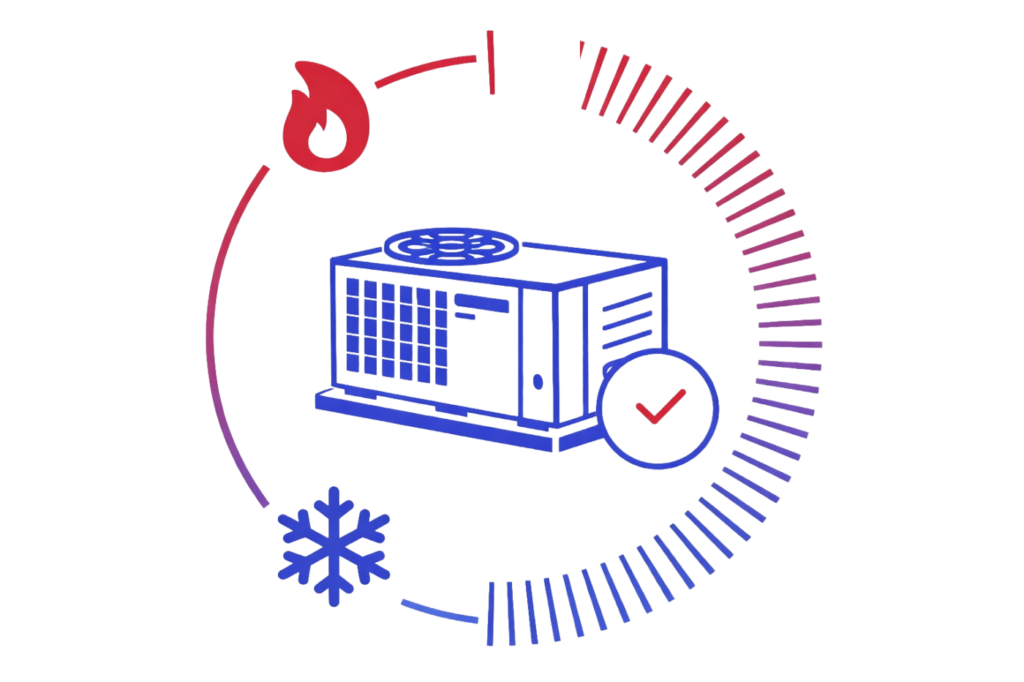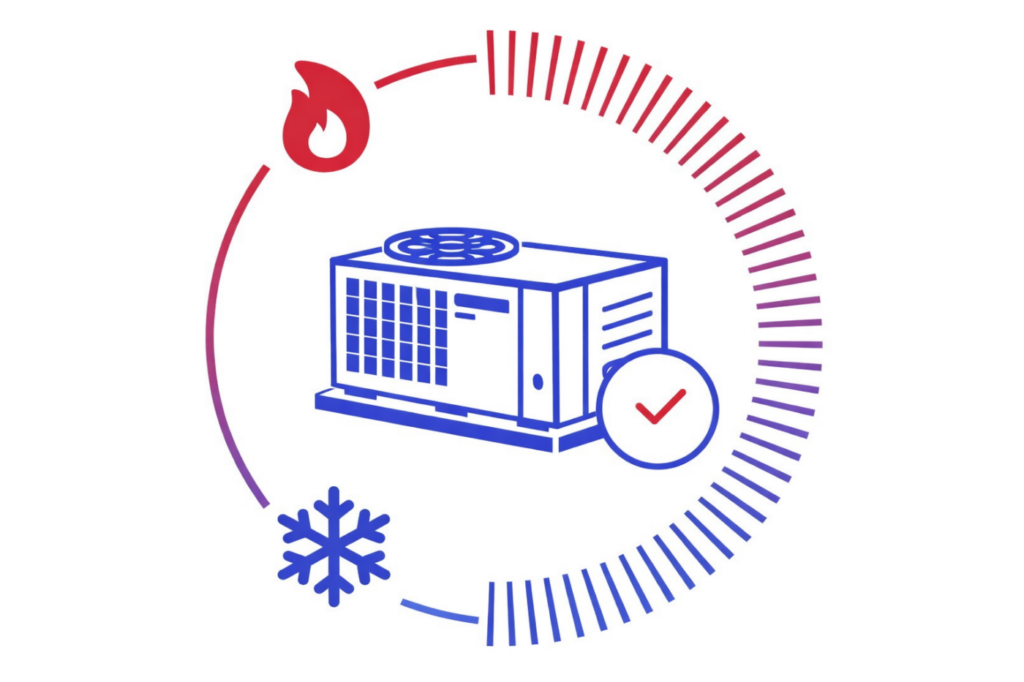Delaying HVAC repairs means higher costs and system inefficiencies. Learn the cost of delaying HVAC repairs and how to save with timely maintenance and repairs.
Key Points
- Fixing small issues now can prevent big repairs and extend the life of your system.
- Regular maintenance and inspections are key to energy efficiency and lower bills.
- Neglecting repairs can lead to health risks and safety hazards, including poor air quality and electrical fires.
Small Issues Escalate Fast
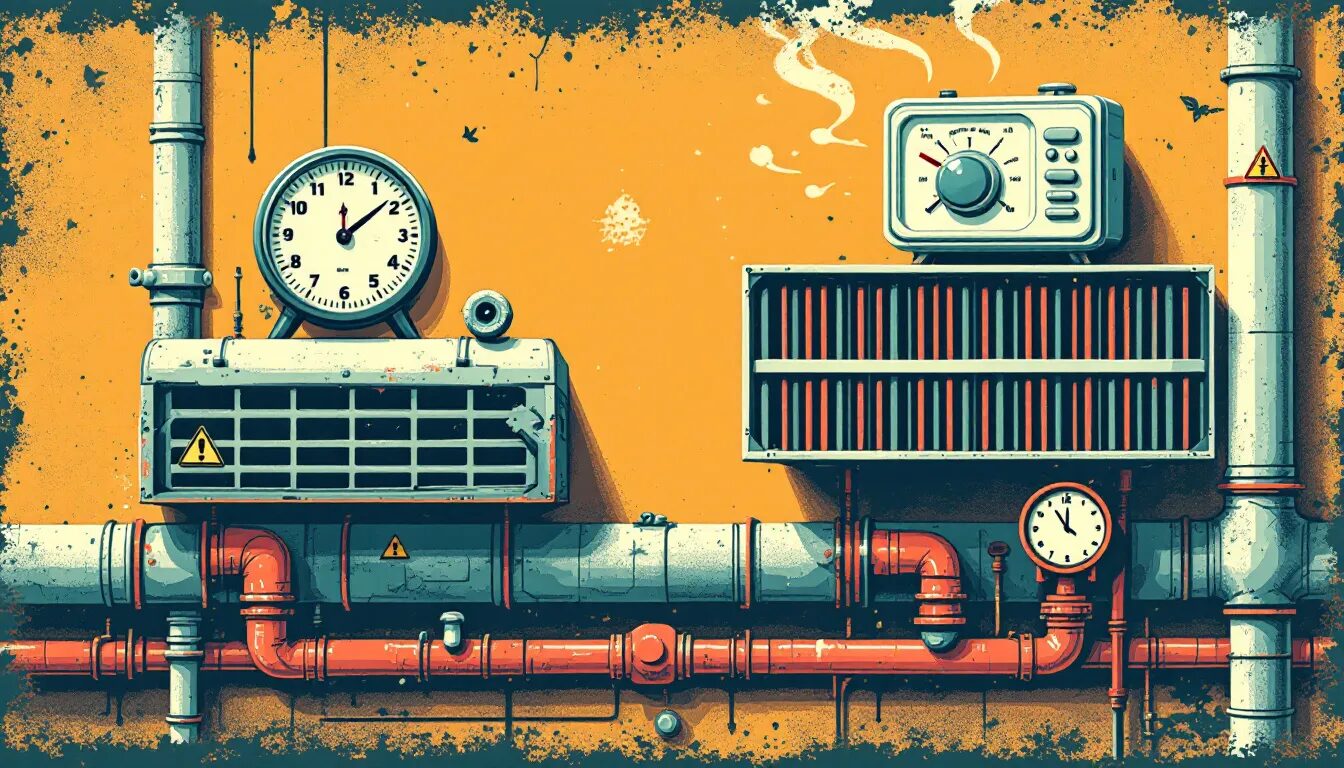
Brushing off small issues might seem harmless, but they can turn into big repairs if not fixed now. Regular maintenance catches these problems early, saving you from expensive repairs later.
Neglecting small issues can lead to total system failures and emergency repairs. Delaying repairs allows small issues to become big problems, higher costs and more repairs. Early intervention is key to saving on repairs.
Neglecting timely repairs puts unnecessary strain on your wallet. Fixing small issues now avoids the headache and cost of big repairs later, so problems are fixed now and repairing early saves you money.
Early Warning Signs
Early warning signs in your HVAC system, like loud noises and strange noises, indicate underlying issues that need attention now. Regular inspections and maintenance can find problems before they become big issues.
Prioritizing regular inspections prevents small issues from becoming big and costly repairs. Catching and fixing problems early saves on repair costs and extends the life of your HVAC system.
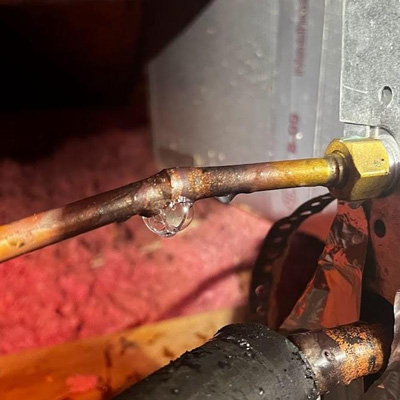
Small Leaks Mean Big Problems
A small refrigerant leak can cause big problems if not fixed now. Delaying repairs on small leaks means big problems, big repairs and system inefficiency.
HVAC pros can find small leaks during regular inspections before they become big breakdowns. Ignoring these leaks shortens your HVAC system’s life, leading to premature replacements.
Small leaks can also mean water damage and poor air quality, higher repair costs and health risks. Timely repairs and regular inspections prevent these big issues, including small leaks.
Higher Bills
Neglecting small issues means higher energy consumption and higher bills. Faulty HVAC systems mean higher energy bills due to higher energy consumption, so fix issues now. Regular maintenance prevents expensive repairs by keeping the system running efficiently. Timely maintenance reduces the chance of a total system failure during peak usage, keeps the system efficient and saves on energy bills.
Increased Energy Consumption
Putting off HVAC repairs can increase energy bills by up to 20%. A struggling air conditioner uses significantly more electricity, resulting in higher utility bills. A damaged HVAC system uses more power to compensate for inefficiency, higher energy bills. And a poorly functioning AC system can make these worse.
Upgrading to energy-efficient HVAC systems can save you money over time and keep you cool. ENERGY STAR-rated systems can reduce energy consumption and costs, more energy efficiency.
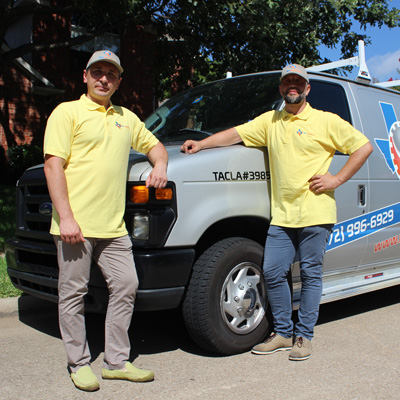
System Efficiency
A small refrigerant leak can affect the entire HVAC system if not fixed now. Delaying repairs makes the HVAC system less efficient and requires more energy.
Regular maintenance and prompt repairs improve HVAC systems’ efficiency, lower energy costs:
- Regular maintenance improves HVAC systems’ efficiency, lower energy costs.
- Prompt HVAC repairs increases system efficiency and lower bills.
- Faulty HVAC systems mean higher energy costs because they can’t maintain desired temperatures.
Poor Air Quality and Health Risks
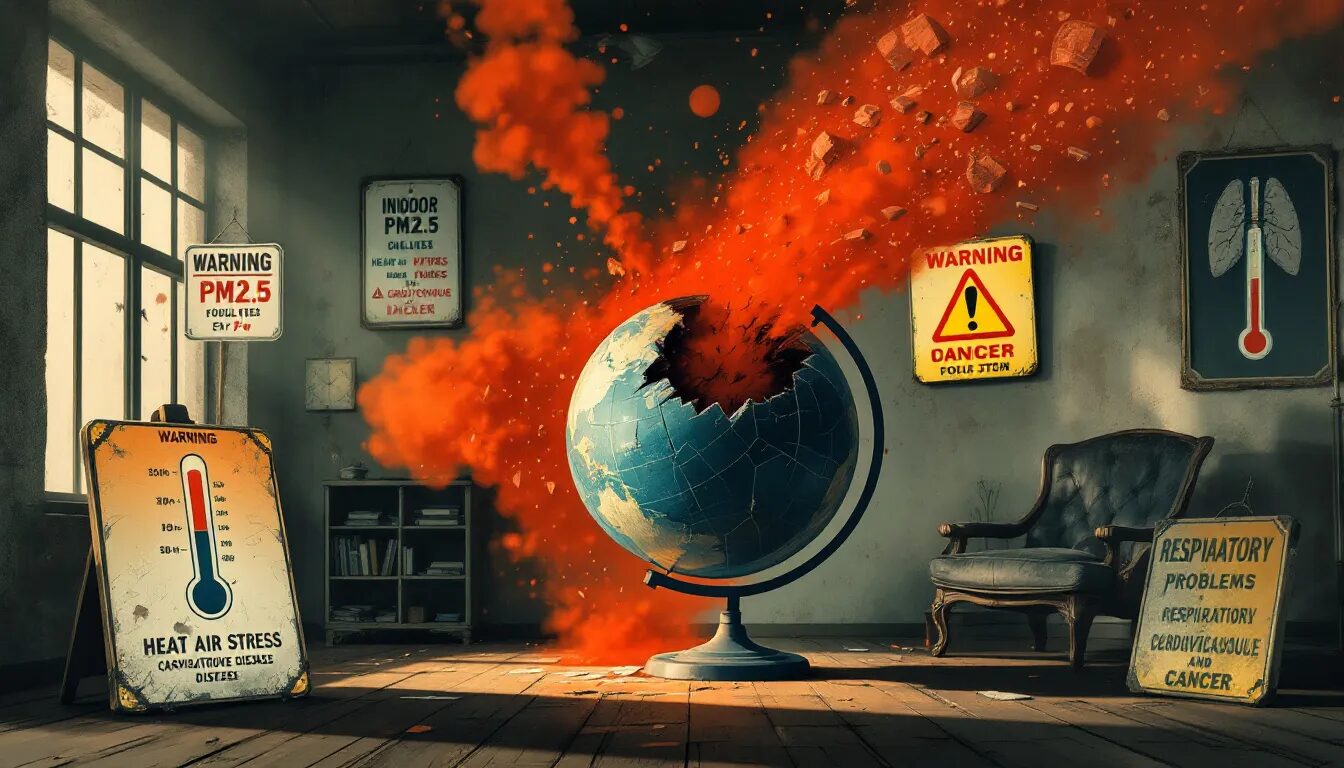
Poor air quality can cause respiratory issues and allergies. It can also make people uncomfortable. Neglecting HVAC systems can cause immediate effects like eye, nose and throat irritation, headaches, fatigue, reduced airflow and warm air.
Health issues from untreated HVAC problems can lead to higher treatment costs. Leaks in untreated air conditioner units can cause health issues from mold growth.
Compromised Air Quality
Unmaintained HVAC systems can harbor allergens like mold and dust, poor air quality. Mold spores can trigger allergies and respiratory problems. Dirty HVAC ducts and components can significantly decrease air quality, posing health risks.
Putting off HVAC maintenance means poor air quality all the time. Regular HVAC maintenance can improve air quality and prevent clogged filters and pollutants from entering the home.
Mold Growth
Neglected HVAC units can foster mold growth, big health risks and costly property repairs. Inadequate HVAC maintenance can circulate mold spores, worsening allergies and respiratory issues.
Shorter Lifespan of HVAC Systems

Neglecting timely repairs can cause HVAC systems to fail early, cut their expected lifespan significantly. A well-maintained HVAC system can extend its lifespan. Regular maintenance can extend the life of HVAC systems and delay significant repair costs. Failing to address repairs can lead to HVAC system failure.
Frequent Repairs
Frequent repairs means the HVAC system is near the end of its life. Increased repair frequency means the HVAC system is deteriorating and may need replacement.
More repairs means the HVAC system is near the end of its life.
Emergency Repairs Cost More
Emergency repairs cost more due to higher demand for emergency services during peak usage. Emergency HVAC repairs can far exceed regular maintenance costs, big unplanned expenses. Emergency repair can help mitigate some of these unexpected costs.
Seasonal maintenance checks keep the system efficient and extend HVAC equipment life. Emergency repairs are more costly than regular service, especially during peak season.
Unexpected Breakdowns
Regular maintenance reduces the chance of unexpected breakdowns and costly repairs. Prompt HVAC repairs reduces fire hazards, home safety.
Regular inspections are crucial to identify electrical and fire risks before they get out of hand. Regular maintenance can prevent hazardous situations with HVAC systems.
Regular Inspections
Annual inspections and regular HVAC maintenance offers:
- Technicians to identify and fix minor issues before they become big problems.
- Energy efficiency.
- Lower costs by preventing major repairs.
Seasonal inspections can prevent minor issues from becoming major repairs. Regular inspections are vital to identify a minor issue before it becomes big problems.
Preventative Maintenance Program
Join a preventative maintenance program for consistent servicing and timely repairs. These programs ensure regular maintenance and necessary repairs are done on time.
These programs lead to lower repair costs due to early issue detection. Effective maintenance programs prevent breakdowns by addressing issues proactively.

Electrical Fires
Faulty HVAC systems are a big risk of electrical fires, property damage and safety hazards. Electrical issues in HVAC systems, like loose connections, can cause burnt wires and fires.
Delaying HVAC repairs means higher repair costs and safety risks and liability issues. Mitigating electrical fires requires timely repairs and maintenance of HVAC systems.
Consequences
Neglected HVAC systems pose a big risk of electrical fires. Electrical malfunctions in HVAC systems can cause fire hazards, property and occupant safety. Fires from HVAC neglect can cause devastating property damage, sometimes total loss of the home. Addressing issues promptly can prevent electrical fire risks and ensure safety and property.
Timely Repairs
Neglecting HVAC repairs increases electrical fire risks, big danger to property and safety. Regular maintenance of HVAC systems is key to prevent hazardous situations that can lead to electrical fires.
Home insurance claims may be denied if a fire is caused by neglected HVAC repairs, that’s why timely maintenance is important. If you smell gas in your house, call an HVAC professional now for safety.
How to Save on HVAC Repairs
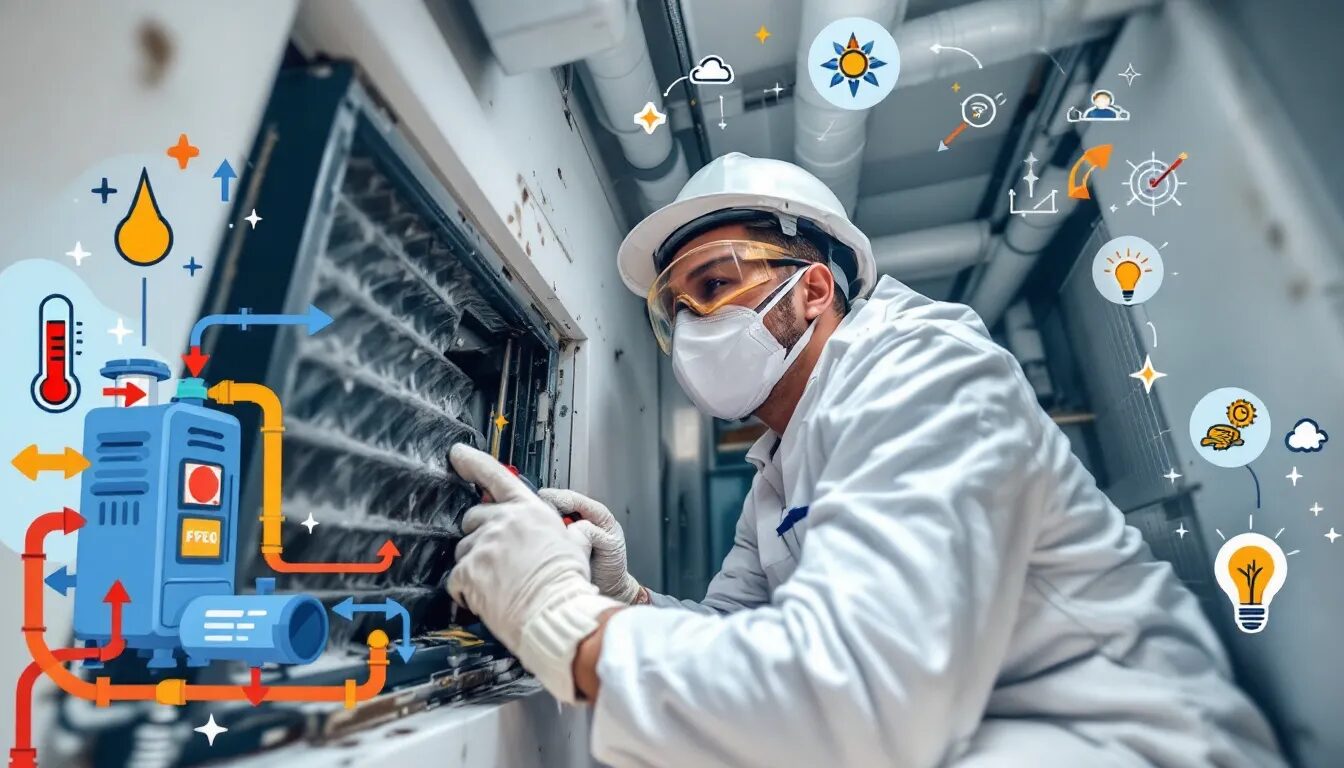
Regular maintenance keeps your HVAC system running efficiently, saves you money on energy bills. Regular maintenance prevents unexpected breakdowns, saves money and stress.
Choosing the right HVAC contractor means quality service at a fair price. Investing in energy-efficient systems reduces monthly energy bills and extends HVAC system life.
Regular Service
Regular maintenance keeps your HVAC system running efficient, saves you money on energy bills. Regular maintenance prevents unexpected breakdowns, saves money and stress.
Neglecting timely repairs shortens HVAC systems’ life, requires costly replacement sooner. Delaying HVAC repairs can turn minor issues into major problems, big repairs and total system breakdowns.
Choose the Right HVAC Contractor
Getting multiple quotes to compare services and pricing from different HVAC contractors is important. A reputable HVAC contractor provides a detailed estimate and warranty for their work, and helps you understand the total cost.
Asking for referrals and checking references can help you choose a reliable HVAC professional.
Invest in Energy-Efficient Systems
Upgrading to energy-efficient HVAC systems reduces monthly energy bills significantly. Energy-efficient systems use advanced technology to optimize performance, lower utility bills. Regular maintenance of energy-efficient systems improves performance, ongoing energy savings.
Investing in energy-efficient systems not only cuts energy costs now but also extends HVAC system life in the long run.
Conclusion
The cost of delaying HVAC repairs goes beyond repair costs. From minor issues to soaring energy bills, poor air quality, shortened system life and electrical fire risks, the hidden costs are big. Regular maintenance and timely repairs are key to avoiding these and ensuring your HVAC system runs efficiently and safely. By servicing regularly, choosing the right HVAC contractor and investing in energy-efficient systems, you can save and stress less. Take action now and enjoy a comfortable, safe and cost-effective home.
Call Now for HVAC Service! We’ll Restore Your Comfort!
FAQs
Listen to strange noises, reduced airflow, uneven temperatures and unusual odors as early signs of HVAC problems. Act now and save yourself from big repairs!
To keep your HVAC system running smooth and efficient, have it checked at least once a year. This proactive approach will help you catch minor issues before they become big problems!
You can save on HVAC repairs by servicing regularly, choosing a trusted contractor and investing in energy-efficient systems. These steps will keep your system running smooth and reduce unexpected costs!
Poor indoor air quality poses big health risks, respiratory issues and allergies which can escalate to serious problems if not taken seriously. Prioritize clean air in your space for your well-being!
Emergency repairs cost more because they are in high demand and requires immediate attention which often means higher service fees. Remember, proactive maintenance saves you money in the long run!
